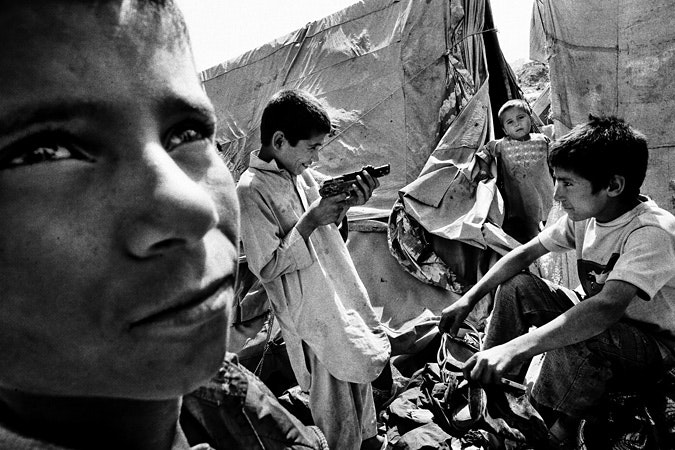Between Suffering and Beauty: Documenting Afghanistan’s Refugees
By Pamela Chen

Photographer Zalmaï Ahad returned to his native Afghanistan to document the human cost of war in his home country.
“I follow the story of the Afghans that nobody cares about. They live there. They are not in the headlines of the news. They are not Taliban. They are not pro-anything. They are like ordinary people like you and me,” Zalmaï says, “My work is to show the world they exist.”
Zalmaï’s photographs of daily life capture the experience of the thousands of Afghan refugees internally displaced by the war. The images are featured in the Moving Walls 16 exhibition, which highlights themes of war, conflict, and their aftermath.
Zalmaï believes that photography has an important role to play in the dialogue surrounding the war in Afghanistan. “The image can carry something beyond boundaries of culture, language, religion. And you have to reach this point in making images,” he said. “As a photographer, it’s very difficult because you see this line between suffering and beauty. But if you can walk on that fine line between them, I think you can communicate something.”
Many of the subjects of Zalmaï’s photographs rarely see photographs at all. “In the West we consume so many pictures every day. During the Taliban the image was banned: no movie, no image, nothing. But in how we understand an image, we are the same. Sometimes the people say to me, ‘I like your picture. I don't know why,’” Zalmaï explains, “And I like this because it means they try to understand, but you touch something a little bit deeper than intellectually. Maybe emotionally, maybe subconsciously: It’s a magic alchemy. And I'm looking for that.”
Until December 2011, Pamela Chen was a senior communications coordinator at the Open Society Foundations.